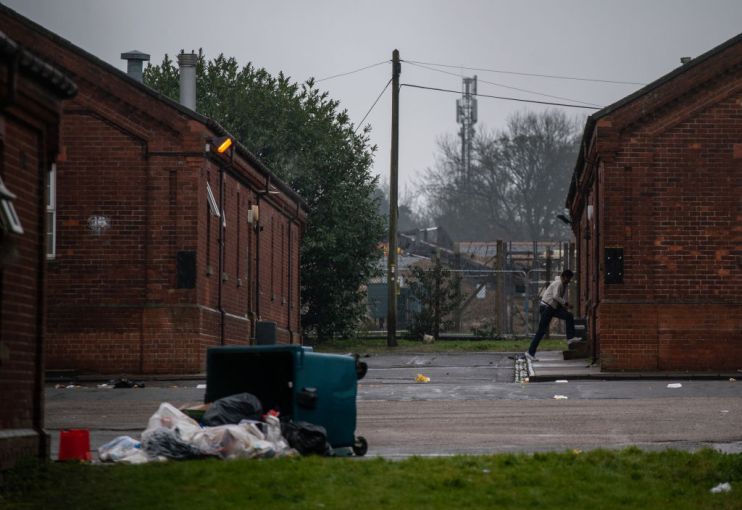High Court rules Home Office’s migrant barracks broke the law after Covid outbreak

The High Court has ruled today that the Home Office broke the law when it housed cross-channel migrants in a run-down barracks, where around 200 people caught Covid-19.
The landmark ruling regarding the Home Office’s Napier barracks in Folkestone, Kent, could pave the way for damages claims.
Migrants housed in the barracks were 12 to 14 to a room, with shared bathroom and toilet facilities and beds only divided by plywood partitions.
The barracks, which had 380 residents at the time of the outbreak, were known to be “basic and slightly run down”, the judgement said.
The ruling added that “little attention was paid at a senior level to what was happening at the barracks until the events of mid to late January 2021.”
The Home Office’s permanent secretary Matthew Rycroft told MPs at the time that there had been 178 positive tests at the Napier barracks in January and a another 19 in February.
The Home Office said today of the ruling: “During the height of the pandemic, to ensure asylum seekers were not left destitute, additional accommodation was required at extremely short notice.
“It is disappointing that this judgment was reached on the basis of the site prior to the significant improvement works which have taken place in difficult circumstances. Napier will continue to operate and provide safe and secure accommodation.”
The Home Office added that it will be “carefully” considering the ruling and its next steps.
Napier conditions
The number of residents at the barracks quickly swelled from 155 in October to 380 in January, while around 12 to 14 residents would share a dorm, sectioned off with plywood partitions.
Due to the shared bathroom and toilet facilities, Public Health England (PHE) warned that the barracks were ‘not suitable’ to be used as accommodation for asylum seekers amid the Covid-19 pandemic.
If the barracks were to be used during the pandemic, then PHE urged that steps be taken to shrink the risk of infection.
The outbreak, which occurred in January this year, led to 100 asylum seekers being moved out into alternative accommodation.
The barracks have the capacity to house 523 people, which was trimmed down to 431 to allow for
social distancing.
The Immigration and Asylum Act 1999 ensures asylum seekers, who appear to be ‘destitute’ or to be likely to become destitute, are provided “support”.
The court’s finding’s matched that of HM chief inspector of prisons (HMCIP), whose report said: “Home Office staff were rarely present at either site. There were fundamental failures of leadership and planning by the Home Office, which had led to dangerous shortcomings in the nature of the accommodation and poor experiences for the residents.”
The HMCIP report added that although there had been an increase in cleaning, to twice a day since the outbreak, “despite this cleaning practices were inadequate. Many areas were filthy”.